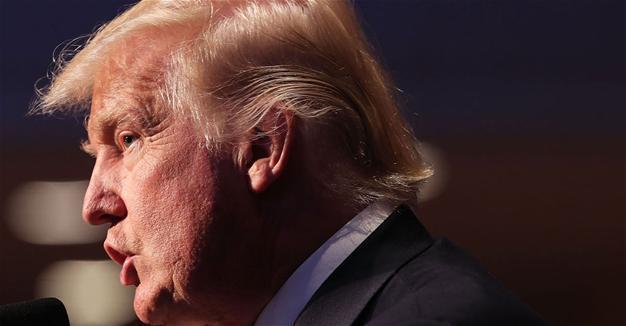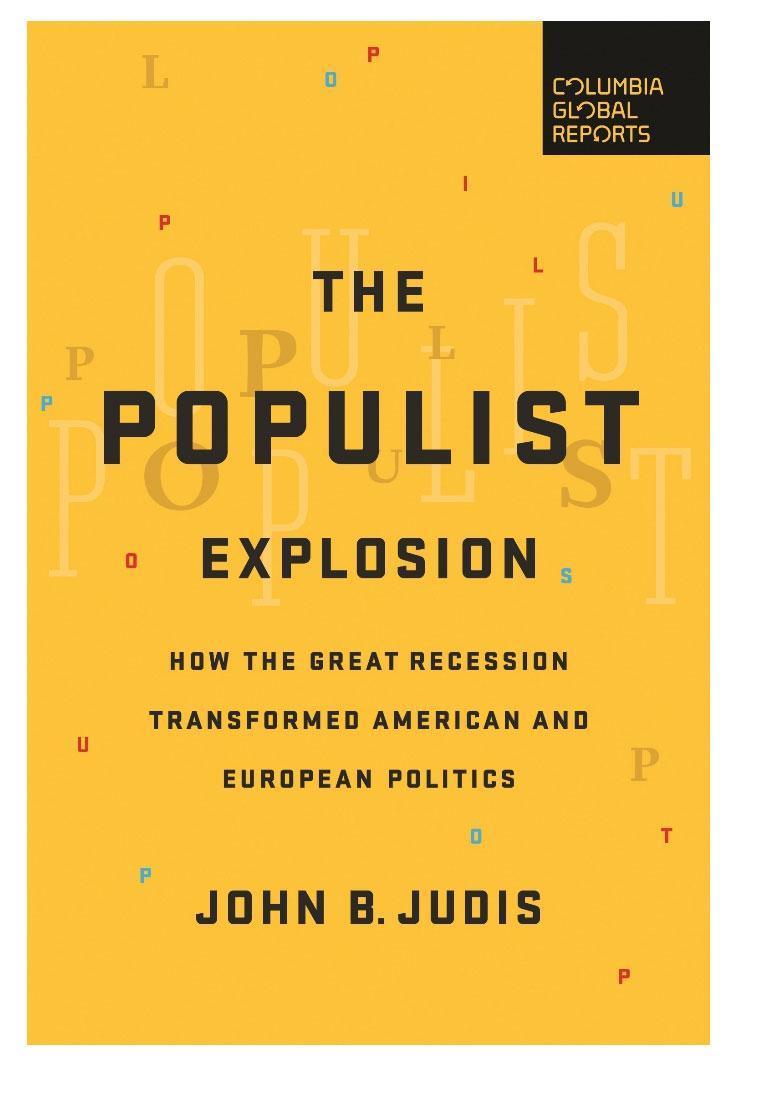The populist explosion
William Armstrong - william.armstrong@hdn.com.tr

US President-elect Donald Trump. AFP
‘The Populist Explosion: How the Great Recession Transformed American and European Politics’ by John B. Judis (Columbia Global Reports, $13, 184 pages)Right-wing populism is on the march everywhere. The election of Donald Trump in the U.S. is just the latest symptom of a growing global phenomenon: The nationalist internationale. The tide is not limited to the West; established and emerging powers seem to be heading in the same nativist direction. Putin in Russia, Erdoğan in Turkey, Modi in India, Abe in Japan, and Orban in Hungary all supply a rising demand for strongman rule. Twenty-five years after the end of the Cold War, our increasingly interconnected global order appears to be entering a new post-liberal age.
 “The Populist Explosion” by American journalist John Judis is a lucid examination of the populist surge across Europe and the United States. Judis argues that populism is not an ideology, but rather a “political logic,” a way of thinking about politics that “assumes a basic antagonism between the people and an elite at the heart of its politics.” The new populism comes in many different forms, but Judis stresses a key distinction: Leftwing populists like Bernie Sanders accuse the establishment of betraying the people; right-wing populists like Donald Trump or France’s Marine Le Pen also accuse the establishment of coddling a third group - whether it be Muslims, Latinos, Jews, migrants, or African Americans.
“The Populist Explosion” by American journalist John Judis is a lucid examination of the populist surge across Europe and the United States. Judis argues that populism is not an ideology, but rather a “political logic,” a way of thinking about politics that “assumes a basic antagonism between the people and an elite at the heart of its politics.” The new populism comes in many different forms, but Judis stresses a key distinction: Leftwing populists like Bernie Sanders accuse the establishment of betraying the people; right-wing populists like Donald Trump or France’s Marine Le Pen also accuse the establishment of coddling a third group - whether it be Muslims, Latinos, Jews, migrants, or African Americans.The current populist explosion has many forerunners. Judis traces it back to America in the 1890s, when the People’s Party set the precedent of a mass movement based on anti-elite protectionism, committed to reforms that both major parties spurned. A later instance came in the 1960s with the presidential primary campaigns of George Wallace, who tossed petrol on the raging conflict over civil rights. In the 1990s, Ross Perot on the left and Pat Buchanan on the right cultivated populist movements in opposition to various consequences of free market liberalism. Later, the Great Recession that began in 2008 led to a variety of symptoms - the Tea Party on the right, Occupy Wall Street on the left, Trump and Sanders.
In Europe, a tide of left and right-wing populism has been rising for years, boosted by both the economic crisis and the rise in immigration. That tide now threatens the very existence of the European Union. Across the old continent, many voters are at odds with establishment politicians over immigration, minority communities, the common currency, free trade deals, and European integration. It is not surprising that an angry new populism has emerged to voice this dissatisfaction.
Judis notes a fundamental divide in populist style that emerged during the Eurocrisis: Left-wing populist groups arose primarily in the less prosperous south; right-wing groups fared best in some of the more prosperous countries of northern and central Europe. He puts this down to the lightening rod issue of immigration, which has reshaped northern European countries more profoundly than southern European countries.
Judis argues that demographic change has weakened the traditional social democratic glue binding northern European societies. “The existence of an immigrant underclass can undermine the public trust on which a welfare state or social democracy needs to be based,” he writes. “Social democracy does not necessarily require ethnic homogeneity. But when ethnic heterogeneity takes the form of an immigrant underclass, it can make citizens less willing to pay taxes to support social benefits.” Right-wing populism has exploited resentment at a combination of economic difficulties with the rapid growth of a non-European immigrant population.
One crucial area neglected by “The Populist Explosion” is the role of the chaotic new media landscape in fueling today’s populist wave. The flattening of news sources and the inherently expressive nature of social media are trapping users in information silos. Demonization and sensationalism run rampant. Since the election of Trump, there has been much talk of how during the campaign bogus “fake news” on low-rent websites was shared far more widely on Facebook than properly reported articles in traditional news outlets. Judis misses how such seismic shifts contribute to delegitimizing the “elite” or “establishment,” fanning the flames of populist rage.
But overall “The Populist Explosion” is tightly argued and persuasive. Judis writes that the success of populism is a symptom, as well as a cause, of crises. “Their demands may be co-opted by the major parties or they may be thoroughly rejected. But the populists roil the waters. They signal that the prevailing political ideology isn’t working and needs repair, and the standard worldview is breaking down,” he suggests.
With the Brexit vote in the U.K. and the election of Trump in the U.S., 2016 will likely be remembered as a watershed year marking a broad rejection of globalization and assertion of angry nationalism. Time will tell whether this is the beginning of a dangerous new era, or just the painful death throes of a 20th century idea.
* Follow the Turkey Book Talk podcast via iTunes here, Stitcher here, Podbean here, or Facebook here.










